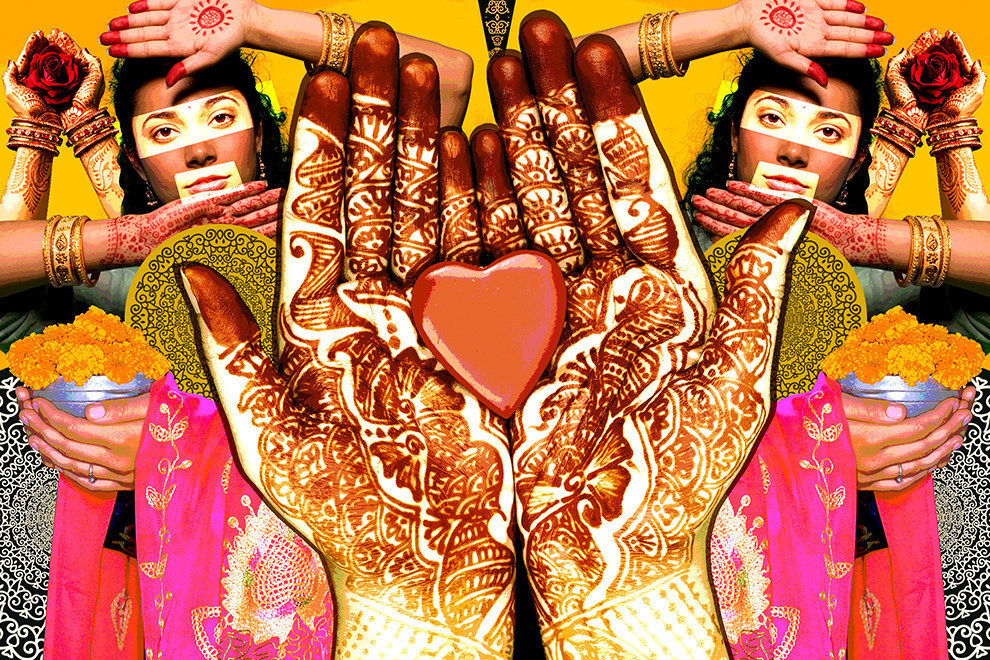
As any Indian with a Facebook account has undoubtedly noticed, it’s wedding season. Mostly, this is a good thing. Reunions, whiskey, buffets, dancing, wildly exorbitant backless blouses that – let’s be real – you’ll only wear once. For tailors, it brings a frenzy of demands. For caterers and venue halls, it brings an annual spike in business. For twentysomethings, it’s a series of unforgettable-and-yet-forgotten weekend-long booze-fests.
But for me, a psychotherapist, it brings a dark reminder about the way we, as a culture, approach marriage. It brings me the dangerous consequences of our approach.
I’ll explain. As a nation, we are wildly extroverted about weddings – we spend months planning their minutest details with extended family involved. We invite hundreds of guests and we share photos across platforms to exhibit the occasion for the hundreds more who couldn’t make it. But when it comes to the relationship at the heart of the wedding, the marriage itself, we speak in hushed whispers. We brush serious issues under big shaadi rugs, we drown incompatibilities in the din of revelry. I’ve been a practicing psychotherapist for four years, in both Mumbai and Rajkot. My clients have ranged from kindergarten students to 96-year-olds, from OCD and schizophrenia patients to gambling addicts. Time and time again, I have met clients driven to despair because of our cultural tendency to brush genuine marital issues away, to trivialise them, and to wrap them in layers of “log kya kahenge” instead of trying to solve them.
Recently, I was approached by a family whose 27-year-old son wanted to end his life. Three years into his marriage, he was miserable. But while his family sought help from a mental health professional, they also ignored his complaints of marital incompatibility. When he complained to them of his unhappy marriage, he was asked to “grow up” and “give it some time”. Time, elders told him, is the magical answer to all marital dead ends. This proposed solution – to wait indefinitely for a genuinely unsolvable marriage to solve itself while its members unravel, alone, into mental illness – is a product of the stigmas surrounding divorce. Unfortunately, it isn’t rare at all.
Another client came to me after divorcing her husband after a 20-year marriage. Yet, months later, the couple continues to live together. They know the amount of social flak they’d receive for announcing a divorce – especially one that the husband didn’t initiate – and they’ve chosen to avoid it. My client's wedding was presumably attended by hundreds of people. Because of stigma, the truths of her marriage will be revealed to none.

This tradition of making marital decisions based on others’ opinions rather than our own extends past divorce cases. I have often encountered young adults complain about their parents interfering with their choice of spouse. More often than not, sentiments like “there was no spark” and “there’s no connection” and “I don’t feel like going ahead with him/her” aren’t entertained or considered valid enough to turn away an otherwise “suitable” proposal. This creates incompatibilities that manifest themselves over years. And at that point, admitting to or attempting to end a failing marriage is stigmatised.
The damage can be severe. I’ve seen complaints of depression, anxiety symptoms, insomnia, and mood swings, all resulting from unhappy marriages. (The realities are grimmer, still – amongst those who suffer, barely a handful actually seek help from mental health professionals.)
More now than ever, the public pressure to announce our landmarks – “in a relationship”, “engaged”, “married”, “announcing the latest member of our family” – are dizzying and unrealistic. The resulting temptation to rush into relationships often cancels out this generation’s newly earned freedom to delay matrimony. More than ever, couples need guidance while they navigate relationships. But while wedding announcements now reach larger audiences than ever, marriage turmoils remain as examined as they’ve been for generations.
I’ve noticed in client after client that, overwhelmingly, families spend more time sharing opinions about flower arrangements and invitation fonts than they do in discussions about the relationship itself.
In some unfortunate cases, stigmas layer up. I remember a young couple who had been unable to consummate their marriage for the three years that they’d been married. The wife had made her peace with waiting; it was a more feasible option to her than mentioning the issue to anyone. She wasn’t worried about herself, but she knew her parents would consider it shameful – she didn’t want to hurt them. Her husband dropped hints of his attraction to other men but to speak openly about his own sexual orientation wasn’t an option either. Like so many of my clients, she was unable to solve her marriage, so she came to me to solve its symptoms.
Our discomfort with openly discussing relationships has consequences beyond its damage to mental health. In some cases, the deafening silence that surrounds couples becomes a thick veil hiding grey areas of sexual consent. A 24-year-old woman came to me following phases of extreme depression. When she was 19, her family had wedded her to a 27-year-old man. She felt no sexual attraction to him. Now, five years and one baby daughter later, she goes stiff at the hint of a sexual encounter with her husband, and continues to alternate between depressive phases and aggressive outbursts. She was a brilliant client in therapy, quick with insights and dedicated to getting better. But her hurt, physical disgust, and the inability to rely on her parents to save her from the marriage kept getting the better of her.
Of course, these case snippets don’t represent all marriages. Amongst my own friends, I see several healthy unions sustained by comfortable, honest, and open conversations.
But far too often, I see the opposite.
When the wedding photos are done raking up Instagram likes, when the mehendi has faded and when we’ve packed our finery away for another year, let's not leave our friends and family trapped and abandoned in secret marital incompatibility. When they try to confess their unhappiness, let's not tell them to grow up. To give it time. To get over it. Let's not tell them that beta, every relationship has its ups and downs, chalo, it’s just a phase. Don't ask them "what will people say?" – it doesn't matter.
Instead, offer an ear and a shoulder. Offer a lack of judgment. Maybe it is just a phase, maybe they will get over it, maybe they do just need some time. But either way, in the meantime, they could use an honest conversation.
